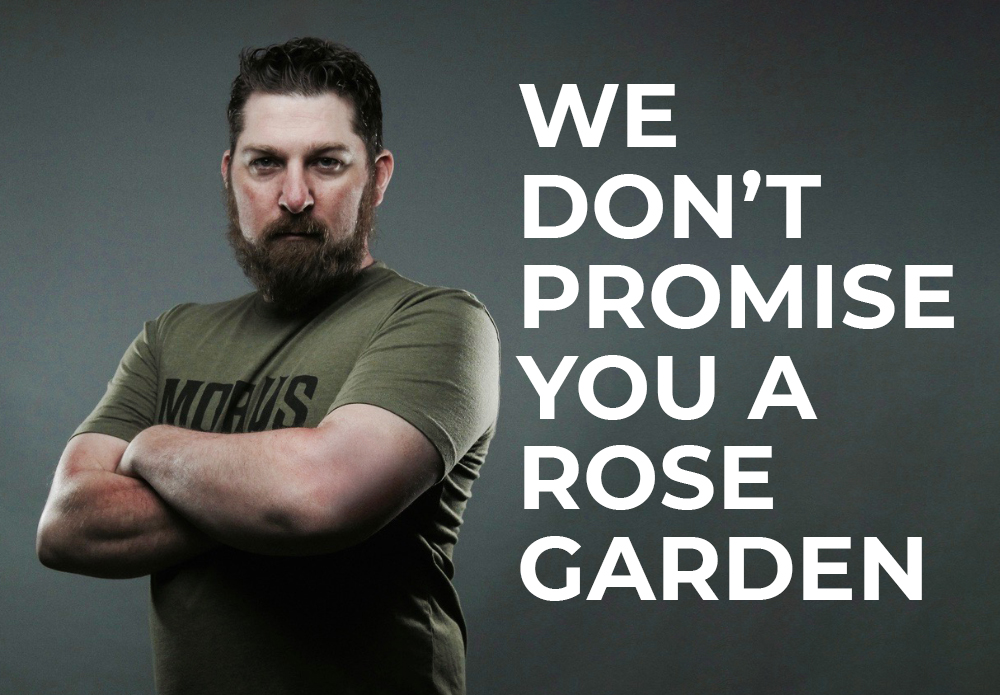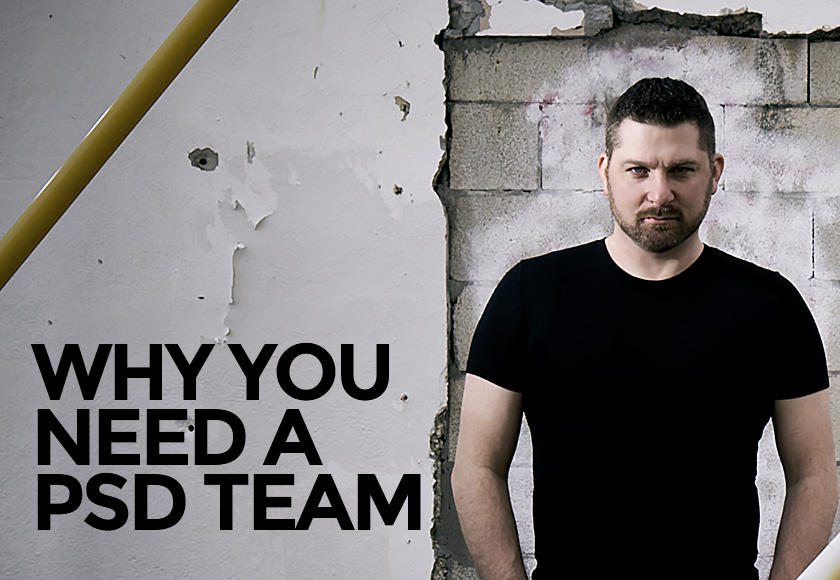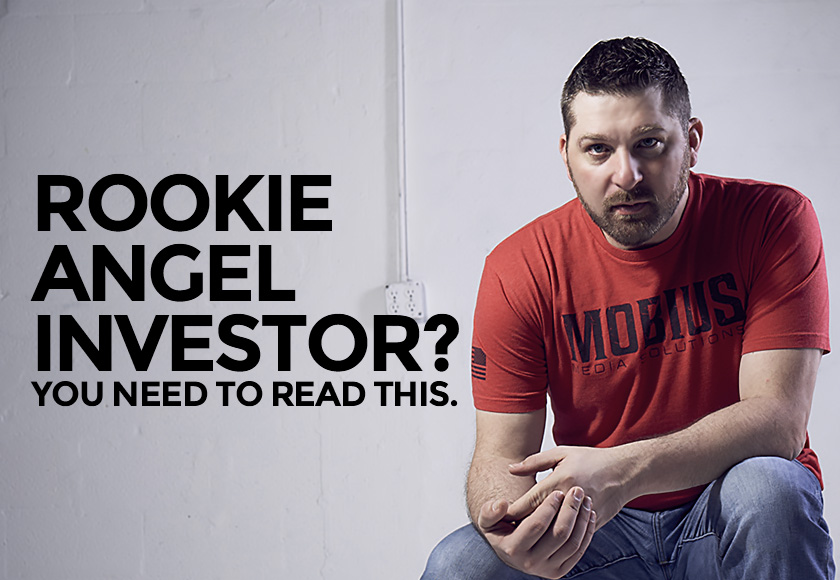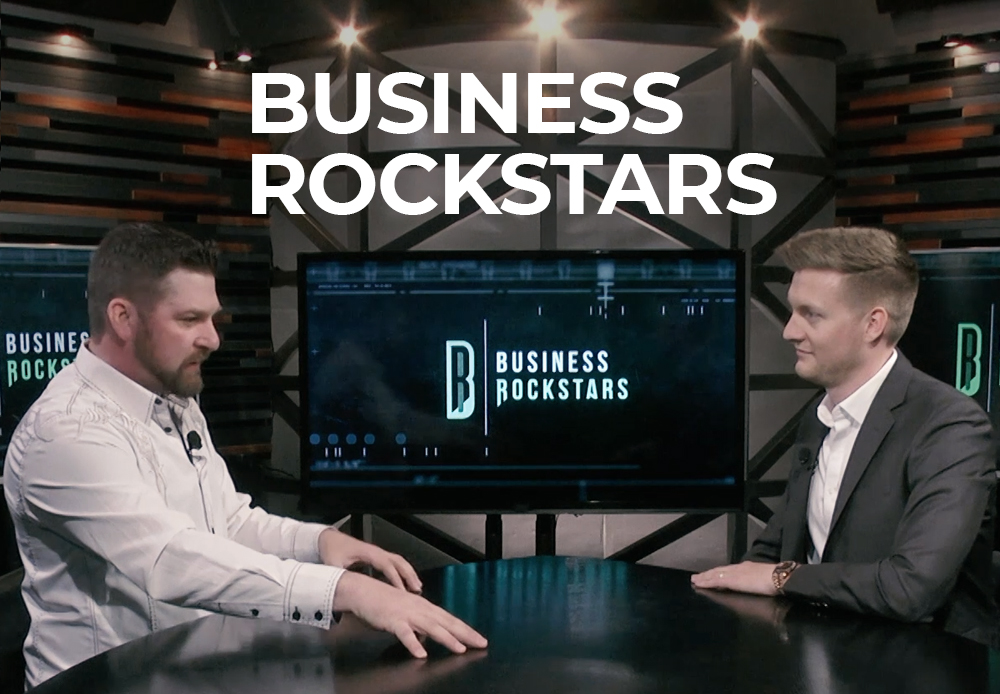WE DON’T PROMISE YOU A ROSE GARDEN

- Business, Entrepreneur, Team Building
Every successful entrepreneur knows that you can’t do it alone. You have to hire a world class team who not only work well together, but all have the same desire to move your company forward. The job market is saturated with qualified candidates, but how do you find the ones who are right for you and your company?
You have to be very, very smart about the people you hire. I don’t even look at résumés. That may sound crazy but think about it. When you enter the “real world”, you’re taught from day one to beef up your résumé; make yourself look a little more accomplished, a little more experienced. What I’ve found over the years is that people tend to look way better on paper; they have a hell of a representative. The reality is usually severely lacking.
“They have to work well with my whole team.”
When hiring a new team member, I focus on mentality and initiative. I also go into an interview knowing 80% of my decision is going to be made based on whether or not this person fits within my current team, not just me. They have to work well with my whole team.
If I like them and nobody else does, they’re not going to work out. If everyone likes them but they have no work ethic, they’re not going to work out. If the whole team likes them, and they’ll work their ass off trying to come up with new ways to make money for the company because they want to run with a bunch of other Grade A Players, they’re a winner.
The fastest way to ruin a Grade A Team is by hiring a B Rate Player. And you will destroy a Grade A Player by bringing them onto a B Rate Team. It is far more beneficial to fire all B Rate Players and bring in an all A Rate Team than trying to replace one at a time because you’ll bring down the Grade A Player’s tenacity.
Take football. Fans may wonder why a team will change half the roster mid-season, and it’s for a good reason. You can’t put Tom Brady with a player who only occasionally shows up for practice, and does the bare minimum while he’s there. It will lower Brady’s confidence in being able to get the win and lower team morale. It will also make Brady not give his best because his best is six or seven times more than that of a B Rate Player.
“I don’t have employees.”
Let me make something very clear: I don’t have employees. I have teammates. My companies are not designed with employees who punch a clock. My companies are designed for each member of the team to be their own leader within their own lane, helping to constantly move the company forward.
General Mattis used to say, “Stay in your lane and own the road”. When driving a line of humvees down Route 1 in Iraq, we sometimes drive nine lanes across, and 300 trucks deep, with each truck just a few feet away from each other, maintaining speed and distance. If you saw an obstacle in your lane a mile up the road, as the first truck in line you had to deal with the obstacle. This means moving ahead to push it out of the road in order for the rest of the convoy to keep moving forward.
The truck behind you takes your place, you wait out of the way until the convoy passes, then jump back in at the end of the line in the now vacant space. This enables the convoy to never stop their forward momentum, while also allowing each humvee to take responsibility for their own lane and deal with things that get in the way. Working together, these actions enable the group to own the entire road. If the obstacle isn’t in your lane, stay out of it.
Here’s the thing about my team: they are winners. Every single one of them. They want to win and will do just about anything to get that “W” on the board. My team is very aware that they are in it together. They take their wins and losses together. They are all on the same page, and all aligned in their goal of moving the company forward.
“Take the day off.”
Something else about my team. I expect 100% of what you have to give in every moment. I am
so tenacious about that. You can ask anyone on my team, “If you come into work and say you’re at 99% but still good to go, what will Patch tell you to do?” Across the board, the answer is, “take the day off”. I would rather you not be there than dragging down the team. If the rest of the team plans on you NOT being there, everything will be taken care of for you. If you’re not coming in giving 100% of what you have to give, take the day off. Find something else to do.
By the way, I don’t believe in giving 110%. To me, that’s not pushing harder – it’s overloading. Think of it this way: you’re weightlifting 100% of your max weight and you add 10%, what happens? You crumble. Another way to look at it is by redlining the engine in your car. You can’t do more than 100% – that’s all you got.
I also don’t like the term “grind it out”. I hear people say that all the time: “You just gotta grind it out”. You cannot grind it out for an extended amount of time. You will ruin your engine. Eventually, you have to get those gears to line up because an engine is a precision instrument; a well-functioning machine. You need to find the gear. Even a well-functioning machine pushed above the redline too much will break. You have to stay within that consistent output level.
“You are perfect 100% of the time.”
When you stay within your consistent output level, you are proving 100% is reasonable; you are perfect 100% of the time. Soon, you will have that thing that meshes and clicks and 100% becomes the norm. It’s not a redline. It’s 100% of what you’re able to maintain forever. That’s how you and everyone on your team should be operating daily.
That’s not to say there are not times when you’re giving more than you can reasonably sustain. When you’re pushing for eight, two, or one week – really the number doesn’t matter – you know you’re giving more than you can do sustainably. However, you’re only doing it for a short amount of time in order to avoid burnout.
In order to properly function as a cohesive team, you have to let your pride go for a minute. Be good with all getting to the finish line together. It’s not about beating your teammates, it’s about getting that “W” together.
You can’t be the weakest link on the team all the time. But it’s okay this one round, this one launch, this one day, this one effort. Others will help drag you along to success. The next project you have to be the strongest so you can drag other people along. There are times when you have to rely on others to push a project further than you have time, ability, or energy.
“I have built a culture of winning.”
In my businesses, I have built a culture of winning. I don’t need to unlock anyone’s potential or push employees to be their best. I hire Grade A Players who, because of the team we have created, will get on each other. They police themselves really well because nobody wants Patch to do it.
I want everyone to help each other out. The team believes in our mission and takes it upon themselves to achieve mission completion. There is no other option. If you don’t, we will find someone else. The team appreciates that. It’s not a dig or negative. They appreciate that they come to work everyday with a set of teammates that are all looking for the win and because of that everyone works harder. You cannot be second rate, or take a slow day. You have to be constantly learning, constantly pushing forward, constantly bettering yourself.
Because I hire these types of people, I rarely have to fire anyone. Those who can’t keep up tend to figure it out quickly and bow out gracefully. And I don’t look down on them for it. In fact, I respect them for knowing themselves and their limitations. For quickly realizing that this might not be the best fit and moving on – no hard feelings, no dragging everyone else down.
“Why didn’t you train them better?”
If I do have to step in, the decision has typically already been made because I trust my team. For example, I have a Facebook expert to oversee all ads running on Facebook. He doesn’t run all of the ads, he oversees those running the ads. The expert had to teach each person below him and get them to a level that will pass his scrutiny. If they fail, I yell at my expert. I’ll ask, “why didn’t you train them better?” If the first thing out of his mouth is, “I have; he’s not listening”, or “not learning”, or “not performing to minimum basic standards”, then they’re gone.
I encourage my team to always learn something new, something they have never done before. Once they learn something new, I ask them to teach it to someone else. Then I ask my team to present to the rest of the team something they applied their new skills to. This is really fun and really causes company growth. I’ve had SEO guys learning Facebook ads, Facebook guys learning SEO, web designers creating apps. Everyone is learning but in the process all trying to outdo each other. That is the culture we have created. That is the minimum basic standard.
Everyone on my team is constantly striving to do better, do more, use initiative, learn more, use good judgement, all in an effort to move the company forward. It’s the culture I’ve created. And all the team members appreciate it because they are all Grade A Players.









